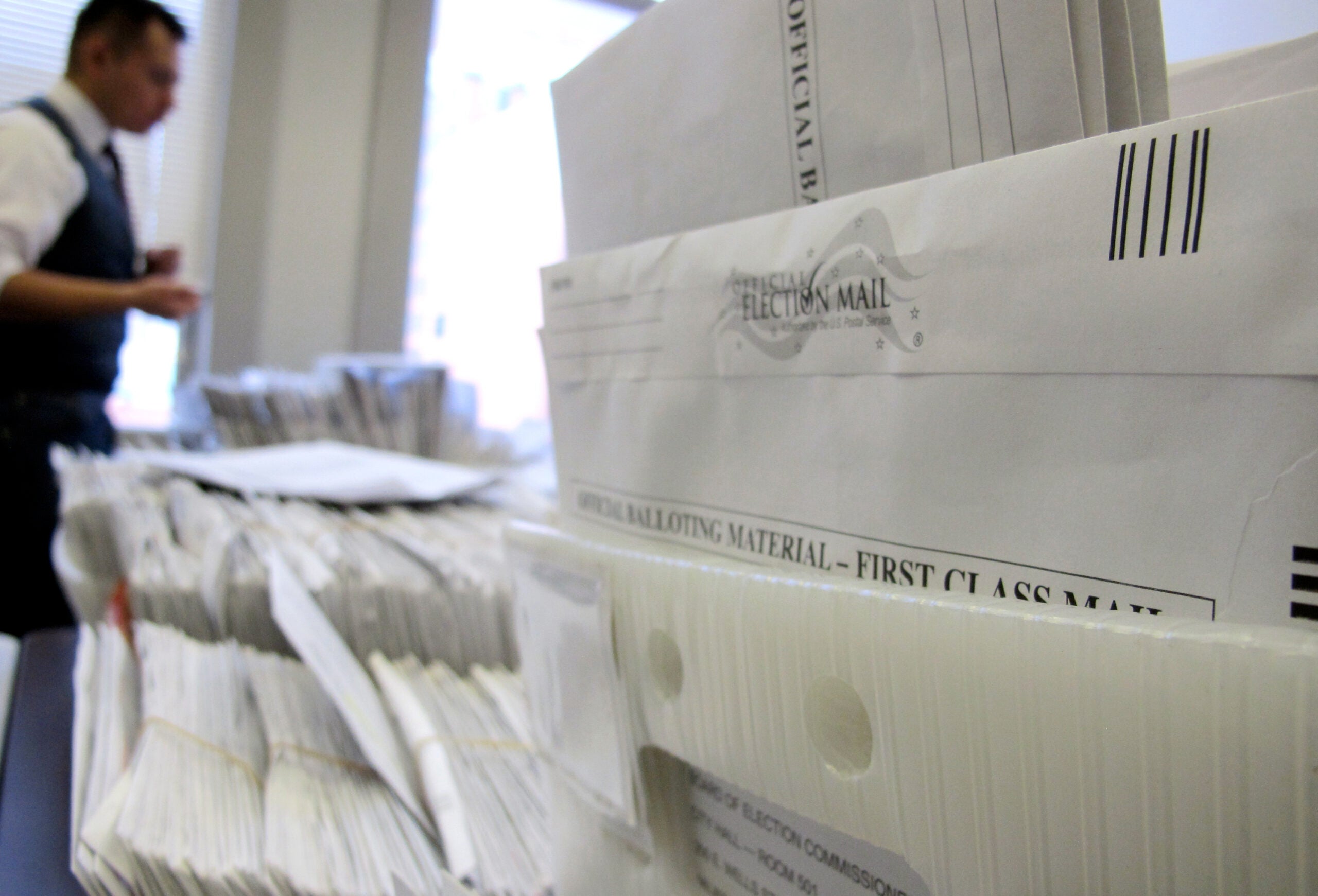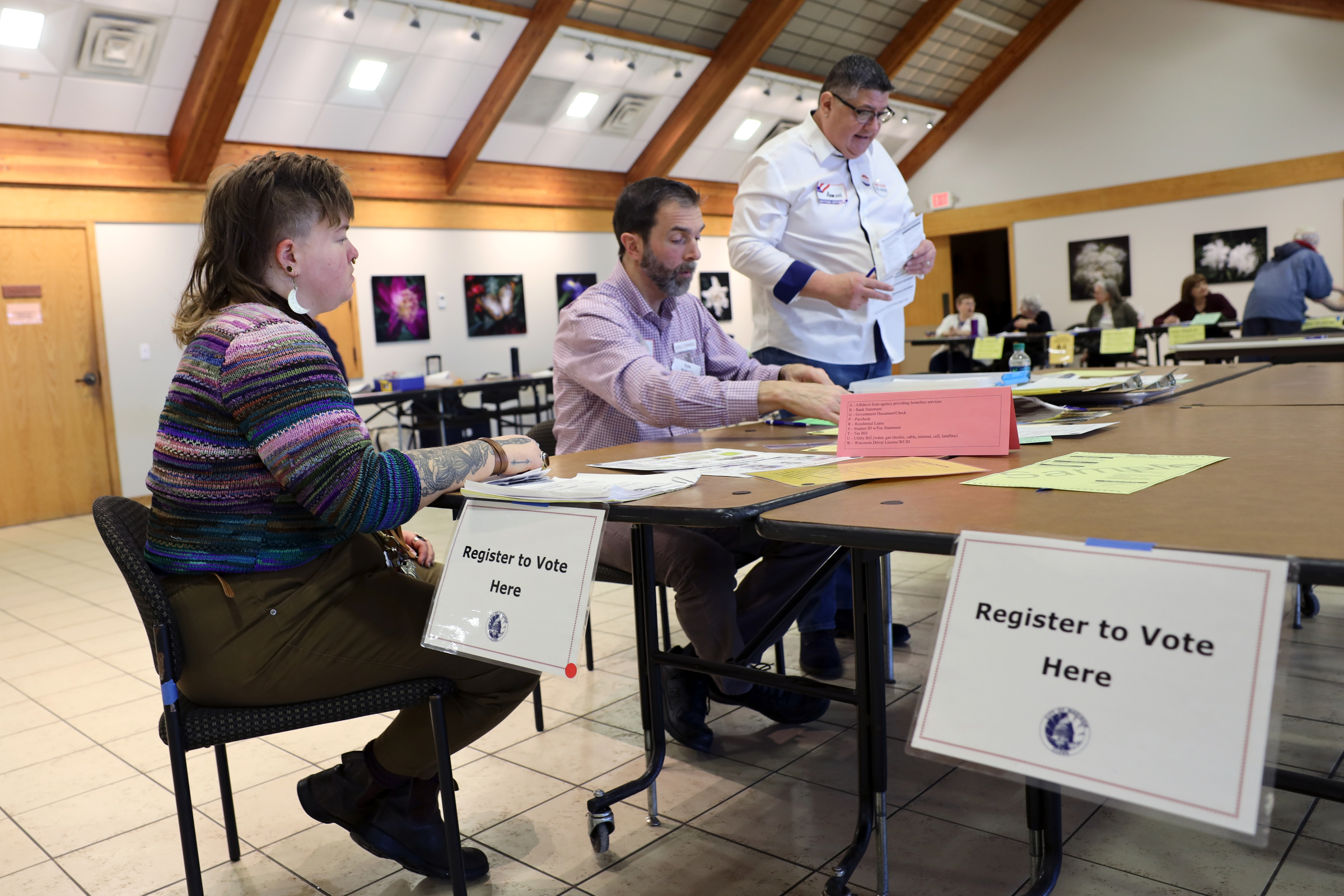The Wisconsin Elections Commission has voted to withdraw guidance instructing clerks to fill in missing information on absentee ballot witness certificates after a judge ruled last week that the practice is illegal.
The move by the WEC Tuesday came the same day Waukesha County Judge Michael Aprahamian declined a request to stay his earlier ruling while the case is appealed.
Taken together, the two steps mean that unless a higher court steps in, the state is withdrawing advice it’s given clerks since 2016, which could potentially result in thousands of ballots being rejected in November.
Stay informed on the latest news
Sign up for WPR’s email newsletter.
Aprahamian sided with Republicans last week in their lawsuit against the WEC, saying the agency had been “stubborn and unjustified” in its reliance on the guidance despite efforts by a state legislative committee to block it.
The WEC, which is composed of three Republican members and three Democrats, first approved its guidance on absentee ballot witness certificates in 2016 in a 6-0 vote. The idea behind the policy was to reduce the risk of voter disenfranchisement in cases where a witness did not write down information such as their city or street address.
The Waukesha County Democratic Party asked Aprahamian to stay his initial ruling, which would put it on hold while the case is appealed. The party’s attorney, Jeff Mandell, told Aprahamian that without a stay, voters would have to be quickly reeducated on rules of voting that they’d gotten used to for the past six years.
“That kind of reeducation is no simple task, especially in the home stretch of a campaign when there is so much other noise around the election,” Mandell said.
But Aprahamian rejected the argument, saying elections must be conducted according to the law.
“And the law has always been that the addresses need to be on these certifications,” Aprahamian said. “And I find that the guidance that was provided was contrary to that law.”
At a late afternoon meeting scheduled to address the ruling, it initially looked as though the commission might not be able to agree on the precise wording of what to do next.
Democratic commissioner Ann Jacobs argued the agency should comply with the court order by removing the guidance from the WEC’s website and informing clerks about the judge’s ruling. But she argued the WEC should not formally “withdraw” its guidance because Aprahamian never used that term in his opinion.
“I don’t think we’re court-ordered to do that, and I don’t think we need to take steps we’re not court-ordered to take,” Jacobs said. “I’m assuming the judge knew what he was doing.”
But Republican commissioner Don Millis, who supported the guidance in 2016, said Jacobs’ approach would be seen as insulting to the court, and frowned upon among Republicans in the Legislature.
“If we’re not going to withdraw the guidance, it’s like a death wish for the commission,” Millis said.
Commissioners ultimately voted 4-1 for a motion that declared that the WEC’s earlier guidance documents on fixing absentee ballot witness certificates were “invalid and contrary to law and have been withdrawn.” Jacobs voted no and fellow Democratic commissioner Mark Thomsen was absent.
Neither Aprahamian’s ruling nor the WEC’s vote Tuesday will be the final say in the matter, which will be appealed to the Wisconsin Supreme Court. There, the outcome of the case is almost certain to hinge on the vote of conservative swing Justice Brian Hagedorn, who has shown a willingness to rule against Republicans in some major election lawsuits.
Should Aprahamian’s ruling stand, it could potentially affect thousands of Wisconsin voters based on a review by the Legislative Audit Bureau.
As part of a sweeping audit of the 2020 election, the bureau reviewed 14,710 absentee ballot certificates in 29 municipalities and found that 1,022 certificates were missing parts of witness addresses. That’s roughly 7 percent of all certificates the agency reviewed.
The rules for voting take on an added significance in Wisconsin, a swing state with a penchant for close elections. The last two races for president were decided by around 20,000 votes and the last race for governor was decided by about 30,000 votes.
Wisconsin Public Radio, © Copyright 2025, Board of Regents of the University of Wisconsin System and Wisconsin Educational Communications Board.




